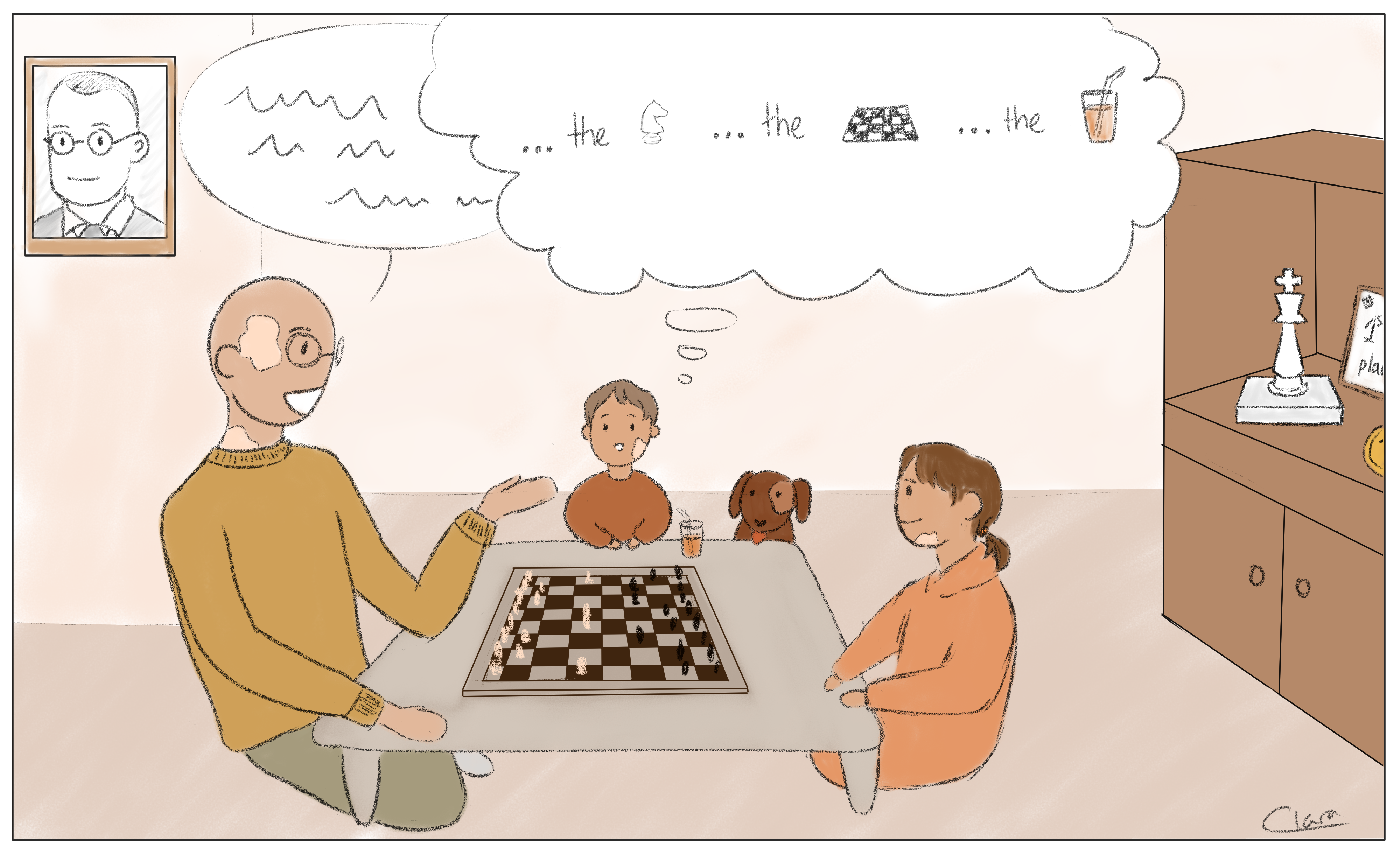How do babies learn grammar from tracking patterns?

Grammar can seem one of the hardest parts of language to learn. Yet, when toddlers start producing their first multi-word phrases, they make surprisingly few mistakes. Even the youngest babies have an inkling that grammatical items are different from contentful vocabulary, because of differences in intonation (https://kotoboo.org/index.php/2024/05/13/what-do-newborns-know-about-grammar/). But the step from noticing differences to using complicated rules is a big one! Grammar is a set of rules for language. You can think of it like the rules of a board game, like chess, but a bit more complicated. There are many different ways a game can play out, but the players always follow the same rules. Babies are little statisticians, keeping tabs on patterns in language better than any computer algorithm. Keeping track of patterns helps them figure out the language rules.
When babies hear language, one of the first things they notice is that grammatical items are a lot more frequent than contentful vocabulary. You can try searching the grammatical word ‘a’ on this page and compare it to a vocabulary item that we are using a lot, like ‘babies’. Even the most frequently used vocabulary items are used less often than grammatical items. If some parts of the language are being used so often, maybe there is something special about them.
Before their first birthday, infants also know which grammatical items appear with which vocabulary items. For example, they know that a noun like ‘car’ should come after an article like ‘a’ or ‘the’, and they are surprised when they hear ‘car’ after a pronoun like ‘she’: for example, ‘she car’. Scientists believe that this is one of the first steps to learning grammar: Babies start learning grammar by keeping track of a number of statistics, such as how often a word is used and which words it appears near.
If your baby is still at a stage where they produce some sounds or individual words, they likely understand more of what you say than you think!
The scientific sources of our comic:
